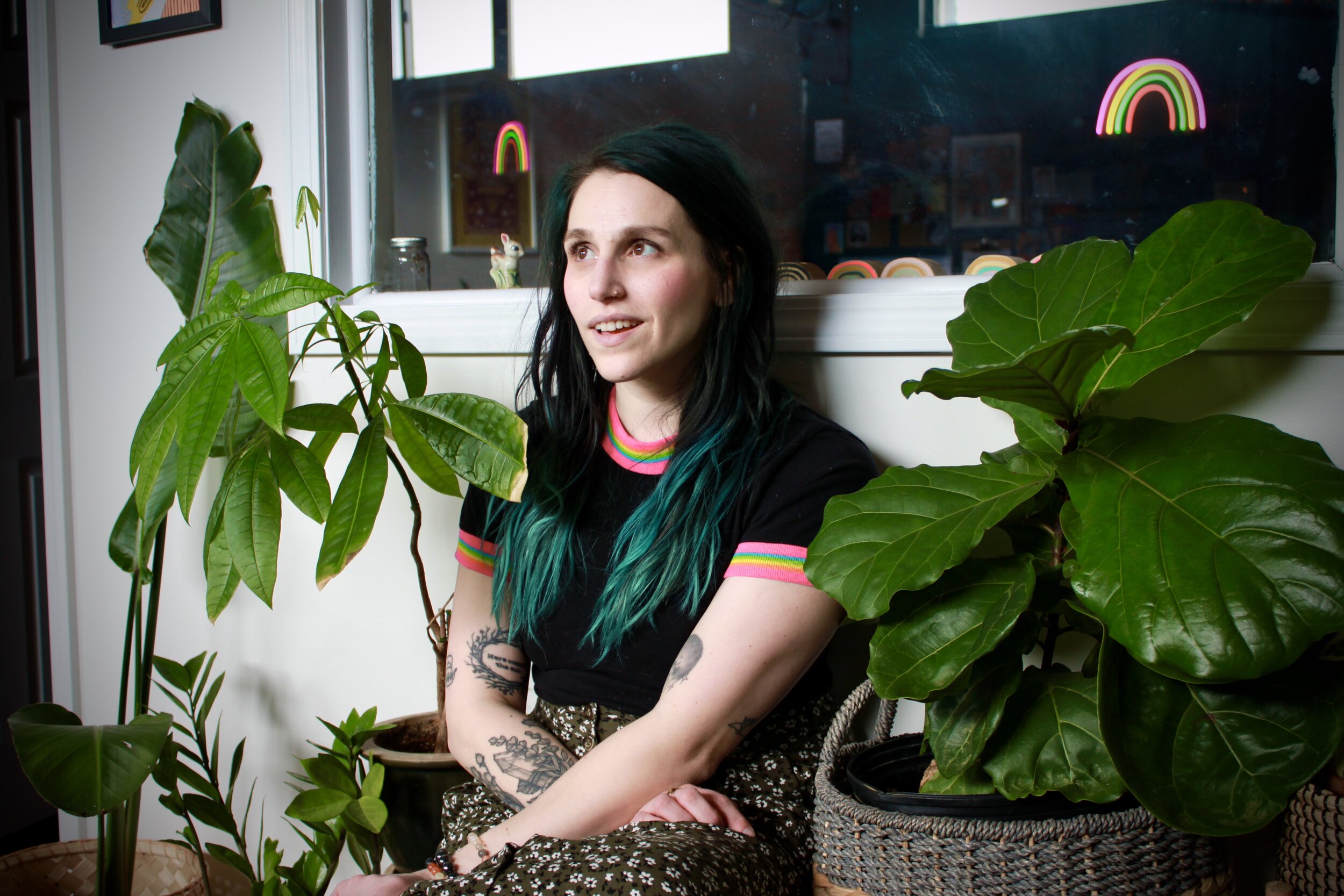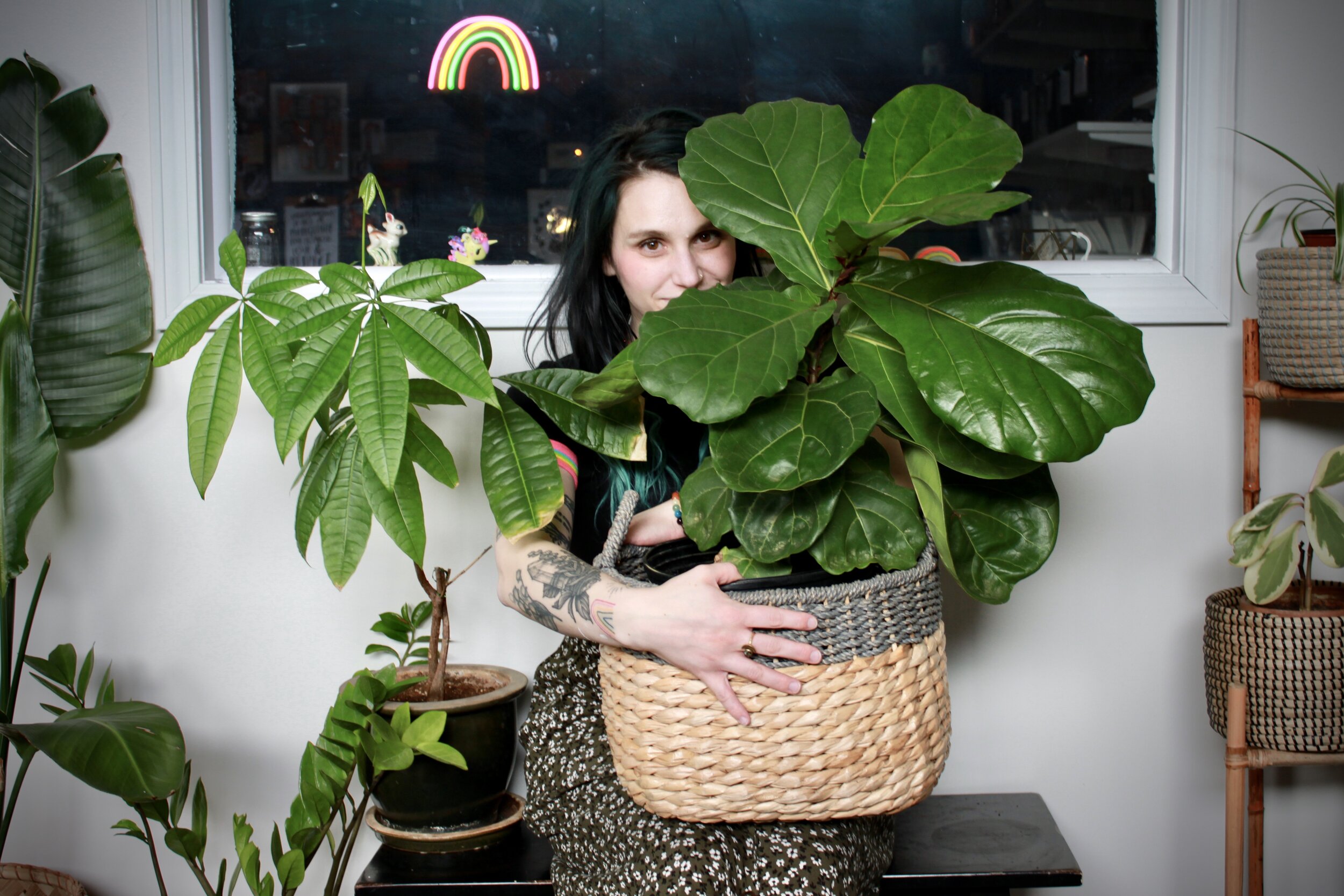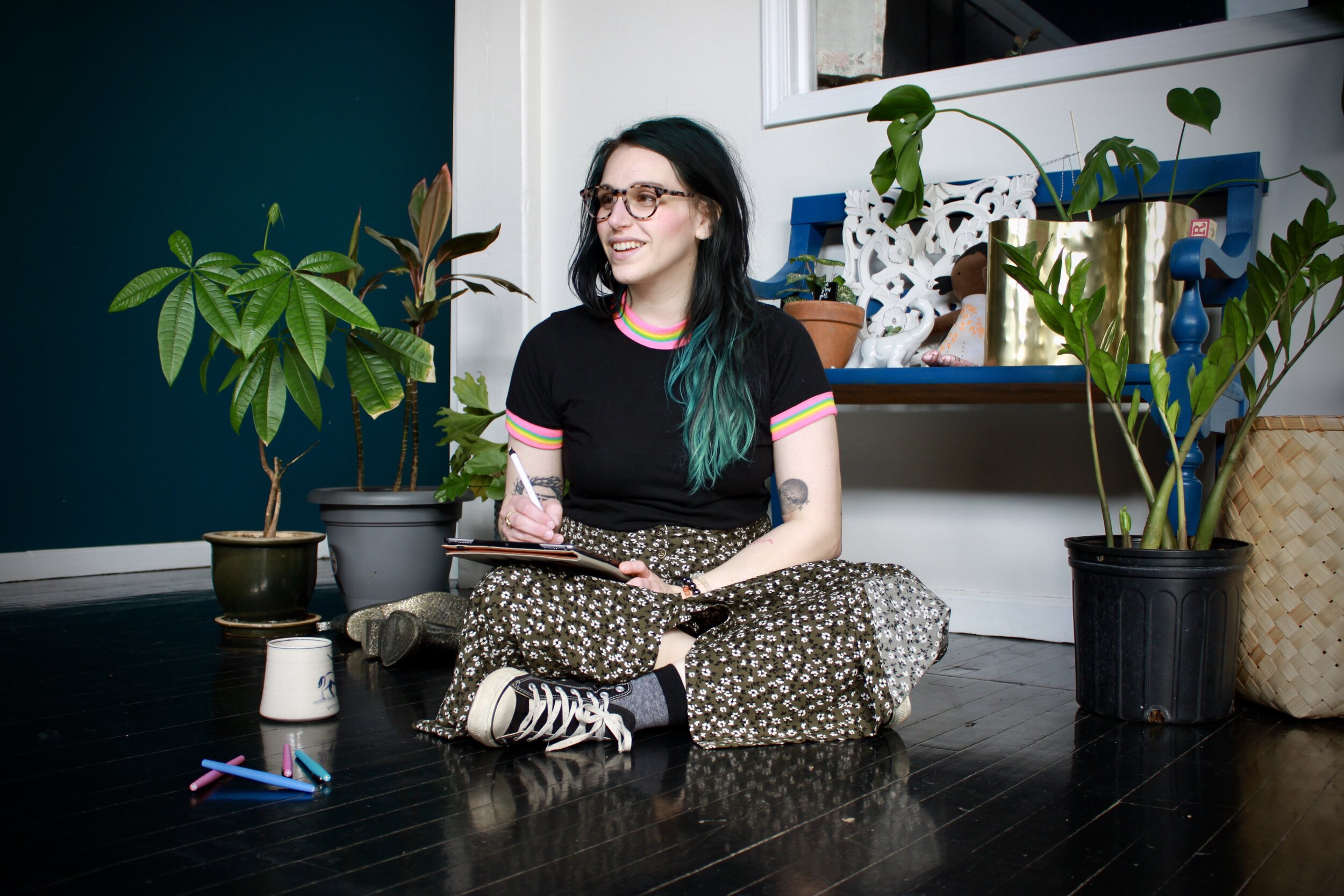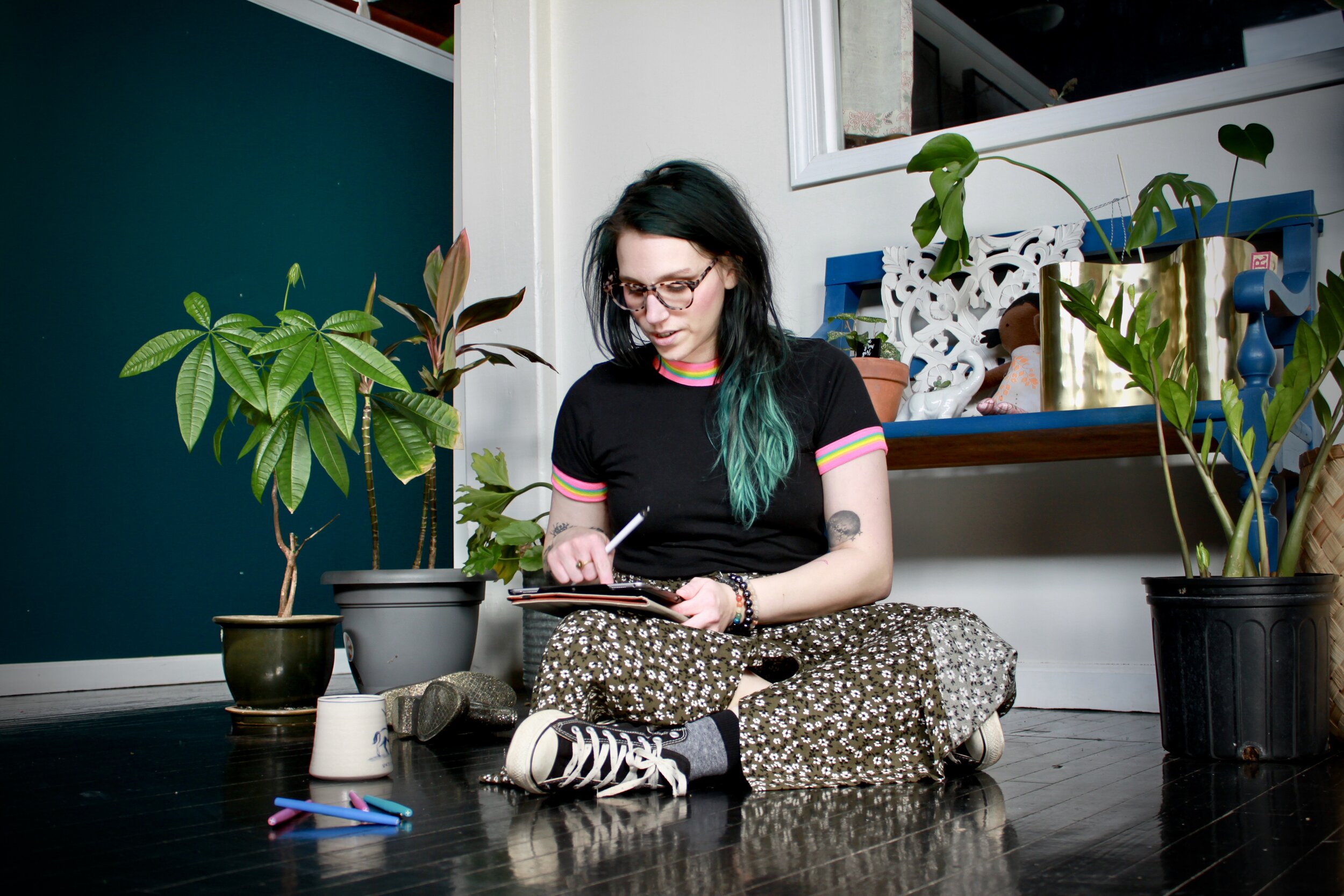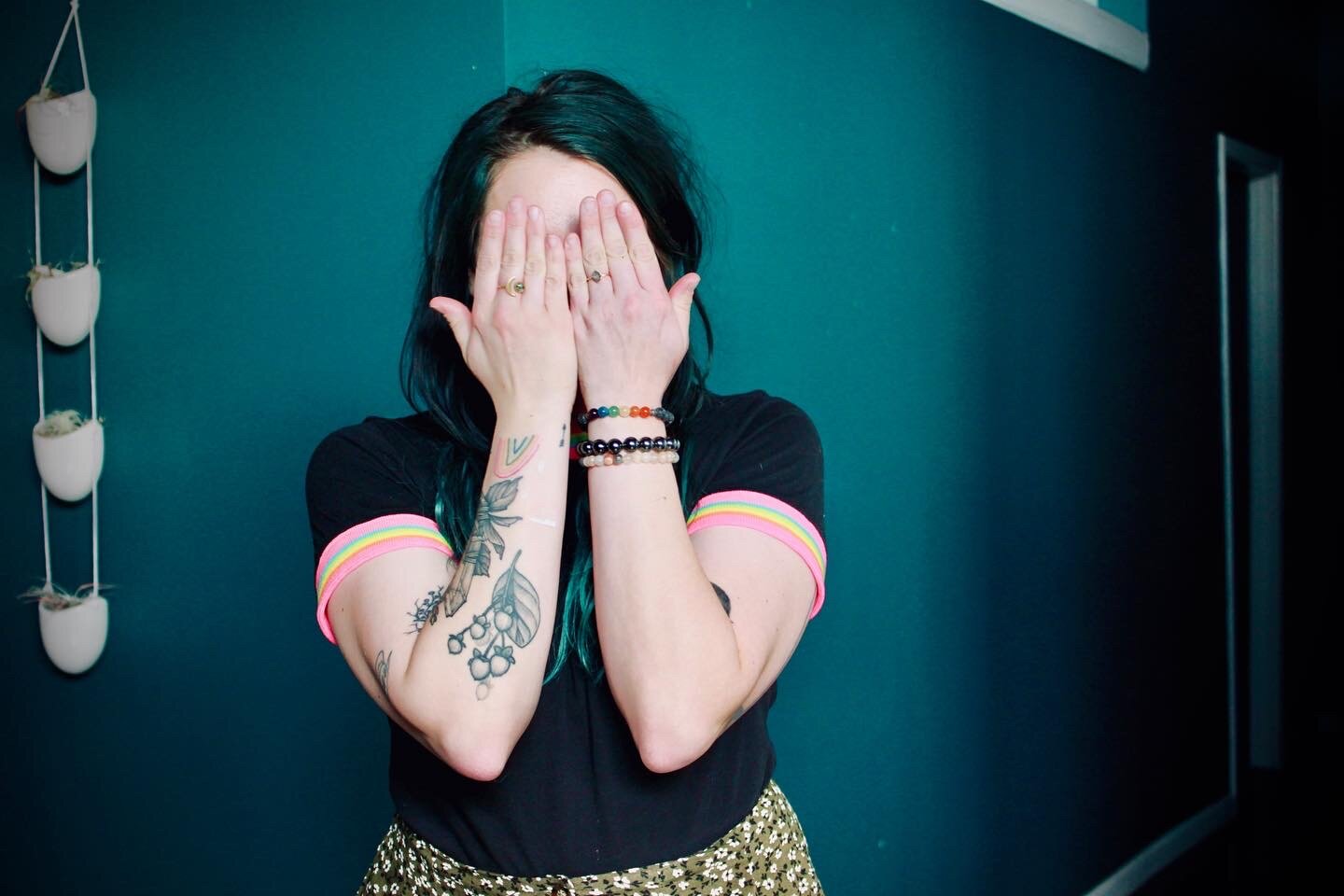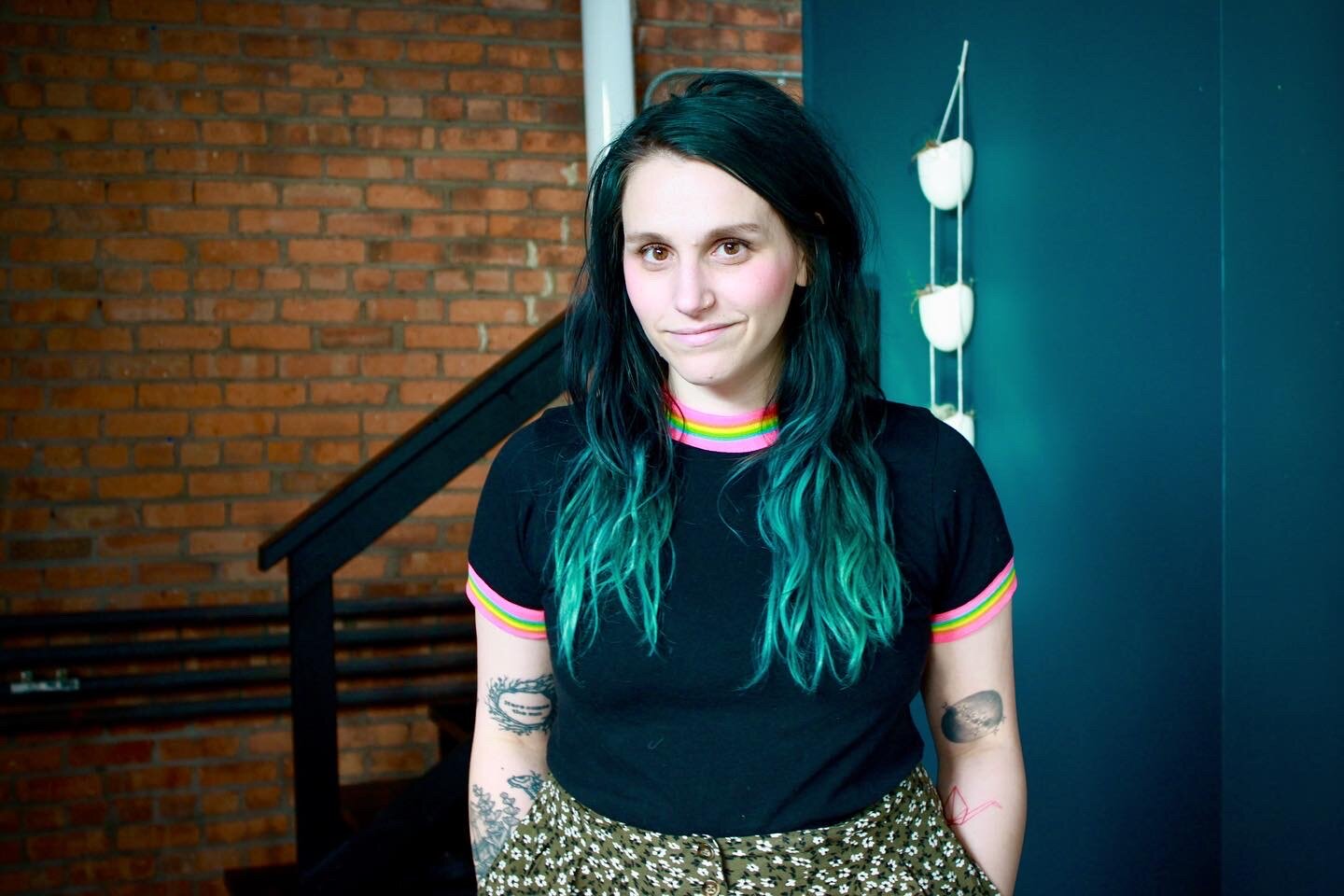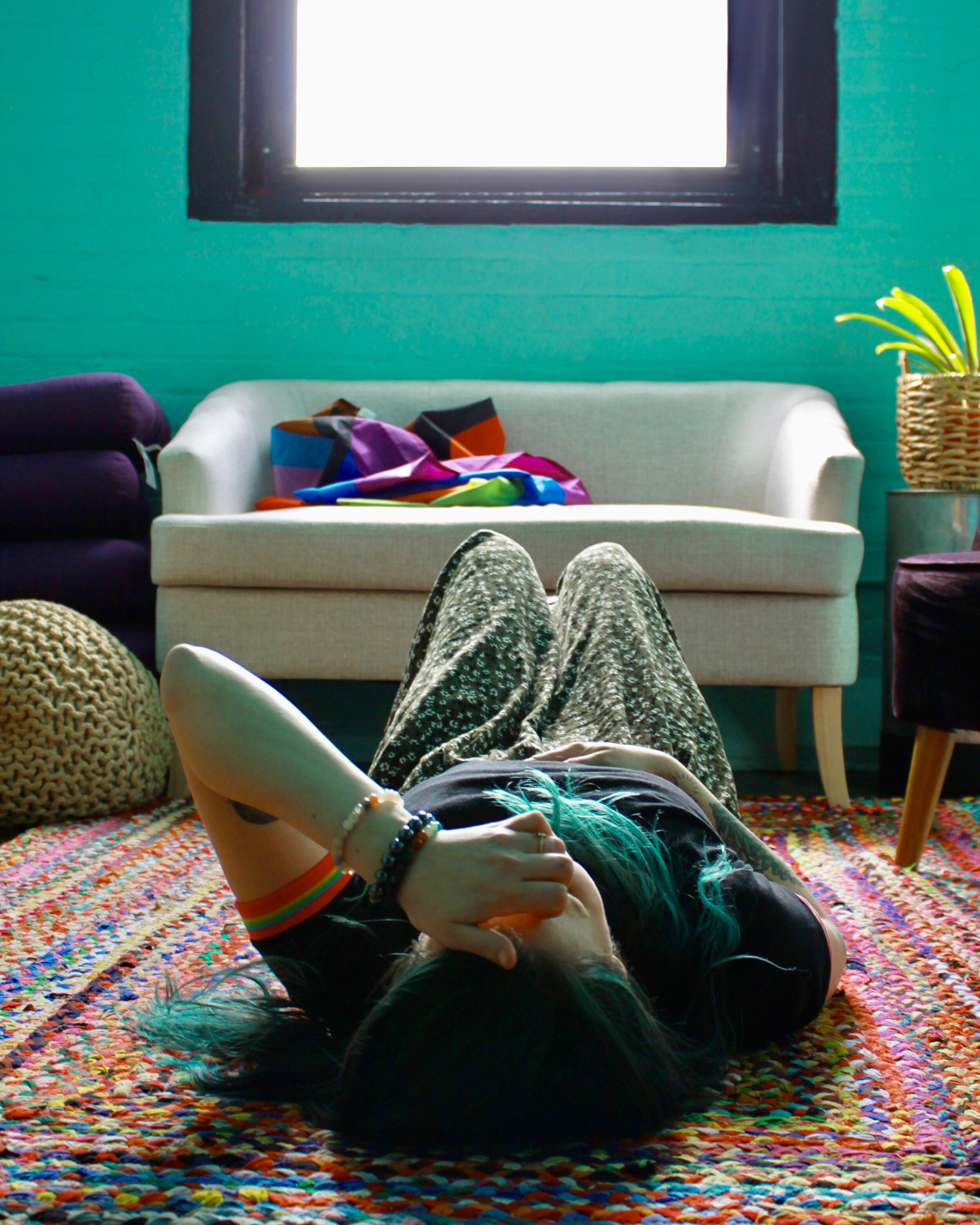Jess Bird
“One of the phrases I use most often is “Forever Becoming.” I feel I’m never *done* growing, healing, and learning. Each stage brings a greater awareness and understanding of who I am, what I’ve been through, and how I navigate the world.”
NAMI: Tell us about your mental health journey.
JB: I honestly cannot think of a time in my life without a mental health issue? Is that weird? It was always a part of my life, having my mother deeply struggle with it, my sister, my brother, and me. I have bulimia, depression, anxiety, ptsd, and most recently I was diagnosed ADHD.
NAMI: How have you healed, recovered, and grown from your experiences?
JB: Healing has certainly been a process. I have tried most everything I can from quick fixes to culty band aids: Yoga, Jesus/church, manipulation, being over involved in projects to feed my ego and give me a sense of self, victim mentality, pills. But when I’m actually growing it’s always the same — therapy, making stuff, awareness, lots of books, breathing, journaling, moving my body, drinking enough water. There’s no escape to make healing hyper speed, it’s messy hard work but it will set you free.
NAMI: What does recovery mean to you?
JB: Oye. “Recovery” is sort of a loaded word. I personally feel always in recovery of some sort. One of the phrases I use most often is “Forever Becoming.” I feel I’m never *done* growing, healing, and learning. Each stage brings a greater awareness and understanding of who I am, what I’ve been through, and how I navigate the world. I think some of my diagnoses are more dormant in my life and some are here and loud. It just depends on where I’m at in my journey.
NAMI: You've accrued a massive following on Instagram for your artwork that often boasts messages about mental health, self care, and healing. How has your art helped you process your own mental health journey?
JB: Art has always been my safe space. It was my way to create worlds away from the hell I was living. I’ve always been anxious and awkward in person and it was also how I could show love to people. It was how I connected. To others and to myself. Bless the Messy is no different, just a larger scale. It’s real people who want connection. They want to feel seen and not alone in the dark. That’s what I wanted and why I started it. It was mostly to remind myself of my own worth, messages I needed, words I wished someone told me. Now, it’s this community all learning and growing together. I’ll never be able to express my gratitude over it. It’s really out of my hands, it’s a universe thing.
NAMI: Does the responsibility of a large social media following feel heavy at times? How do you maintain balance and boundaries?
JB: It does and it doesn’t. I honestly am at a really good place with it now. I know my boundaries and I have put a lot of things in place to protect them. A few years ago, it did more. I felt responsible to take care of everyone and make sure I helped everyone figure everything out. It really was a perspective shift and a letting go of what I cannot control and what is not mine to try to. Social media is a tool. It can be a very, very useful tool. We can connect, we can learn new things, we can even start our healing journey. But all the real work happens when you close your app and are alone with yourself. Your feelings, your demons, your past, your future, no one can truly get us through that but us (and you’re stronger than you think!).
NAMI: Besides art, forms of self-care do you practice?
JB: I always joke that I do very boring self care. Like having a non cluttered space, doing my dishes, walking outside. Nothing fancy. I just find it more helpful when my surroundings are peaceful, I seem to be more at peace. Also, forever journaling. Even if it’s just five gratitudes or a list of feelings or even a rant about something/someone. I find writing it down actually helps me let it go.
NAMI: What forms of mental health-related stigma have you observed or run into personally?
JB: I grew up very low income with basically no parental supervision. The mental health system was incredibly hard to navigate and know how to advocate for myself. My pediatrician was a man (I honestly like him fine), but I remember at 16, I tried in a very small way to mention I had an eating disorder. I said, “Umm so I don’t really eat” (because I threw everything up I ate). He looked at me and said, “You weigh 120 pounds. I think you eat just fine.” And I never brought it up again. I have endless examples like that. I always was made to feel like I wasn’t honest or didn’t understand my own health or body. Even when I overdosed as a teenager the nurses who pumped my stomach made me feel so much shame instead of so much support. I think that’s why so many of us hide our darkness. We just don’t want anyone to make us feel worse than we already do.
NAMI: What do you think needs to change or be improved to make mental wellness more accessible to queer folx in Rochester?
JB: 1. I think we need more queer counselors or knowledge of such. Most queer people I know have never had a therapist that is also queer. It would just be a huge understanding and safety for folks. 2. More free therapy and group therapy, peer groups. I think about kids who might not be able to get parent consent but desperately need to talk. Peer groups would be so wonderful for that. Also I think we need more groups for parents of queer kids so they also have a safe place to talk about fears and hard things but also learn to to support their child. 3. Access to healthcare, meds, etc.

